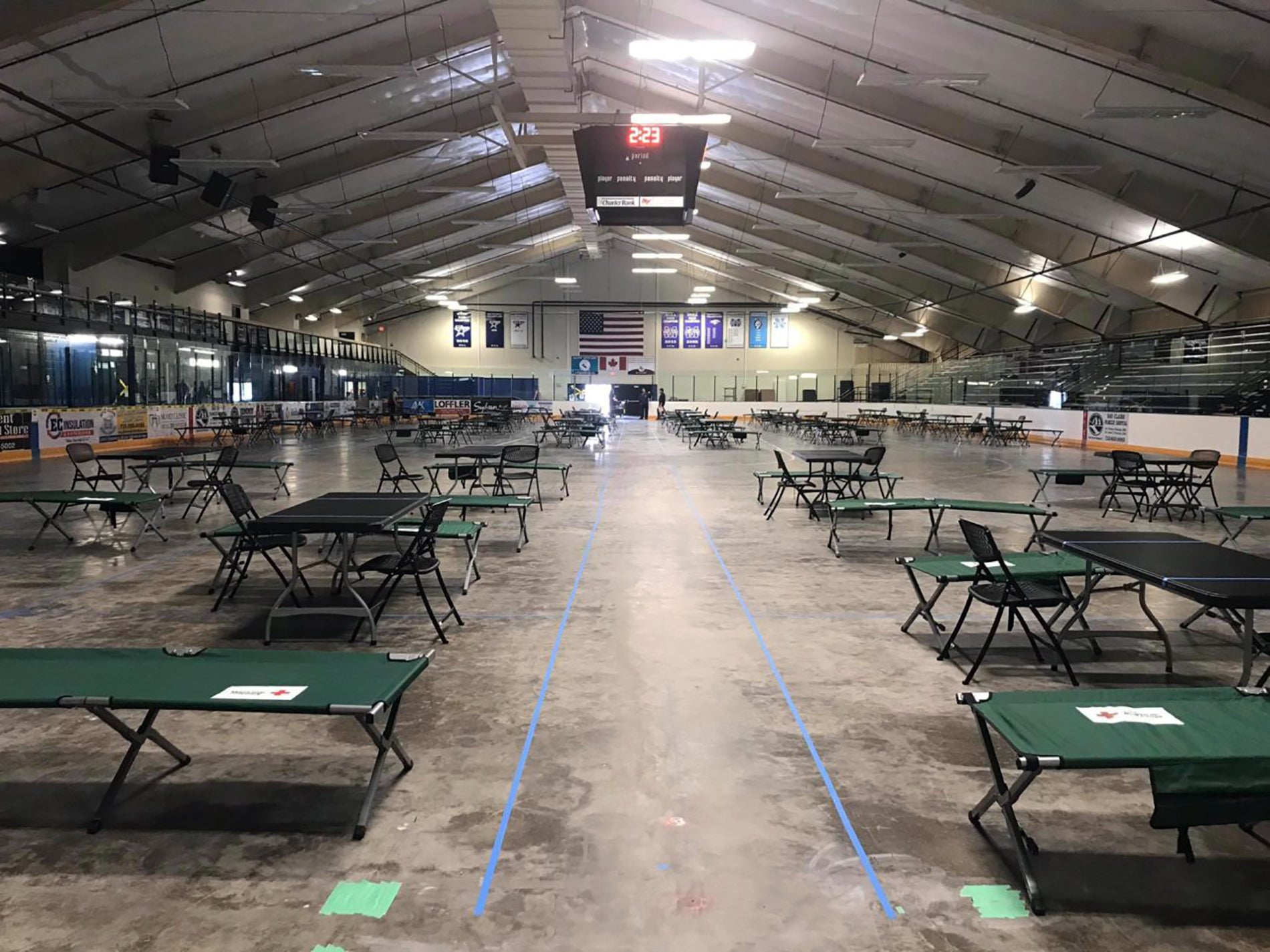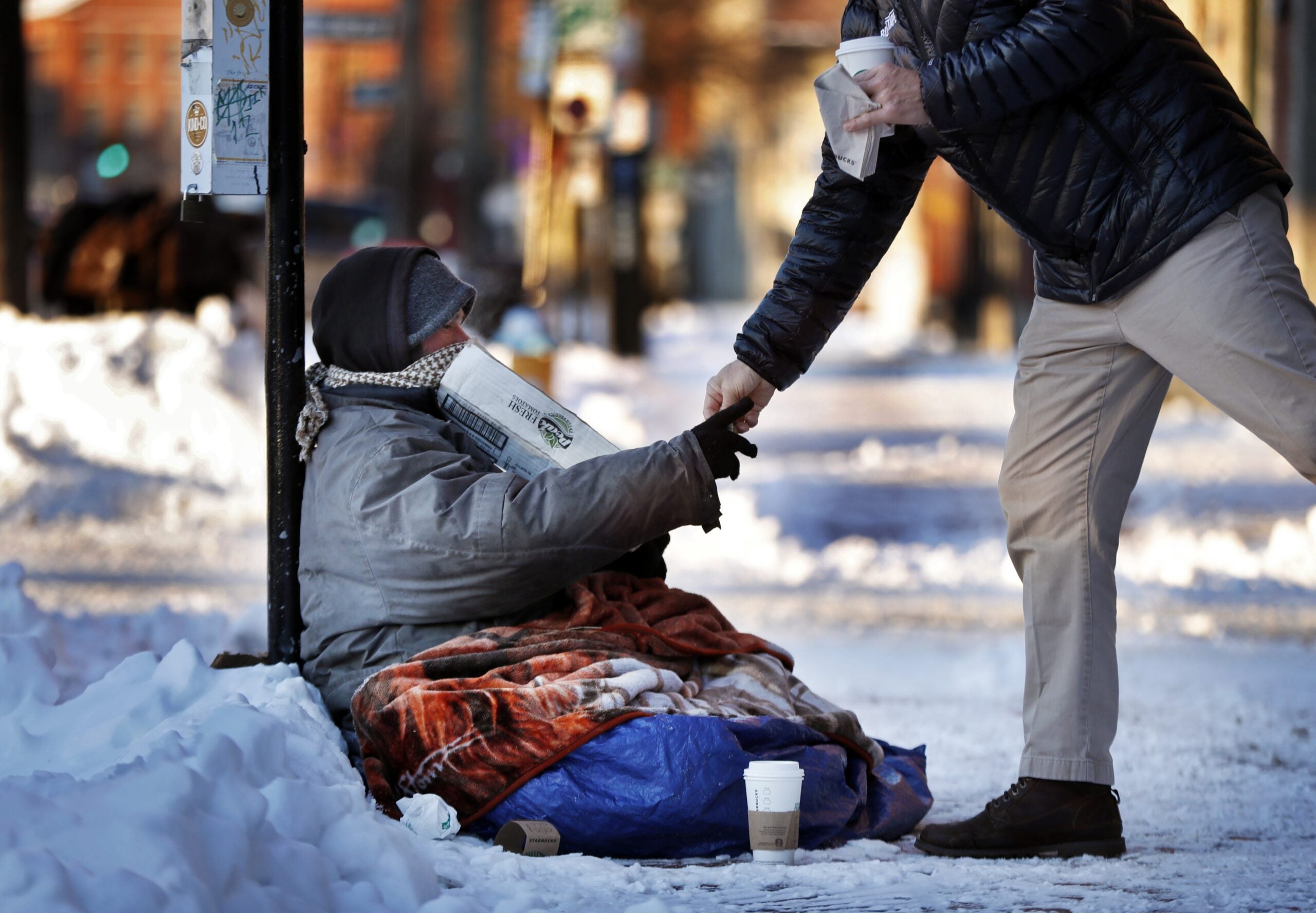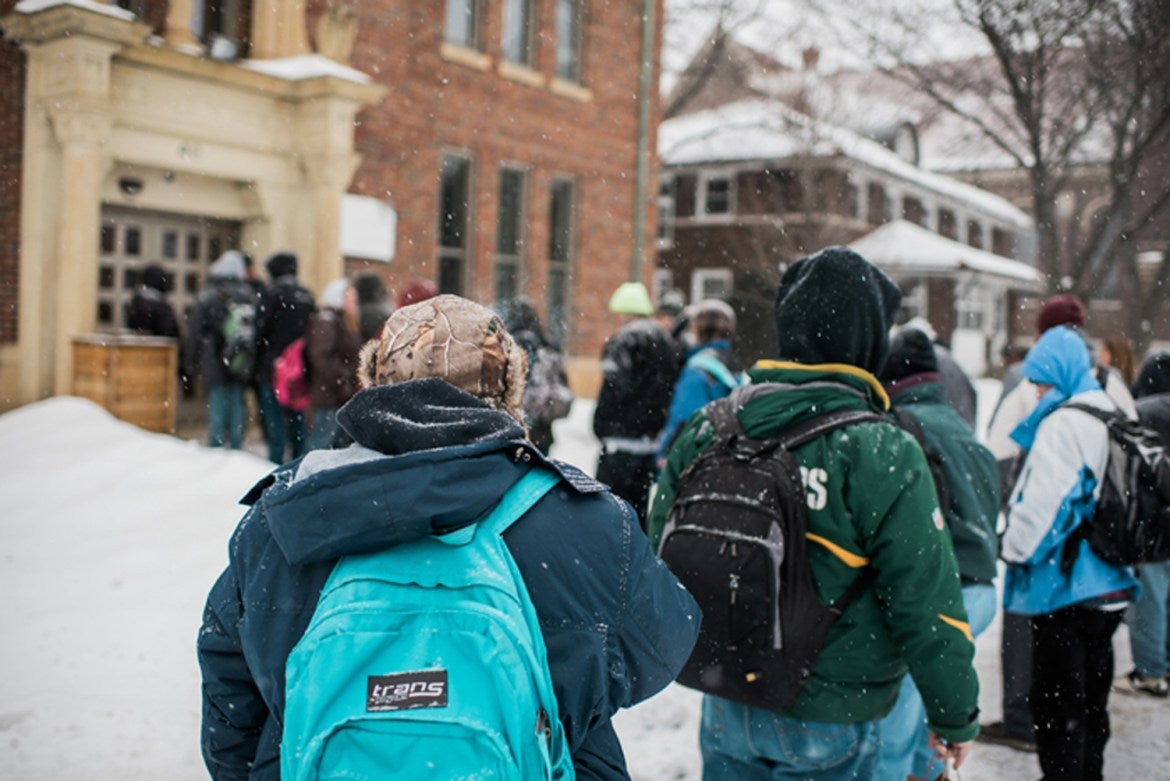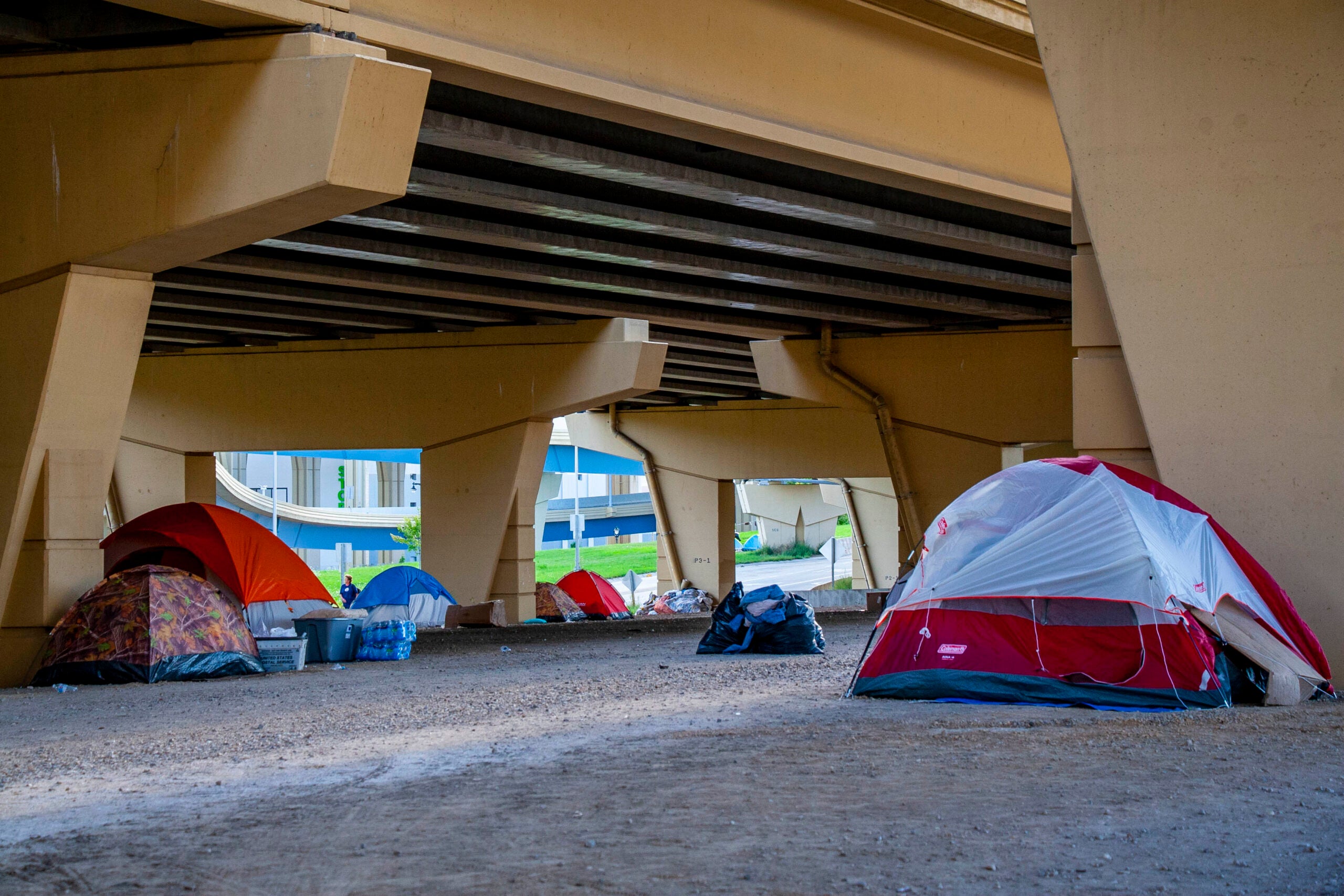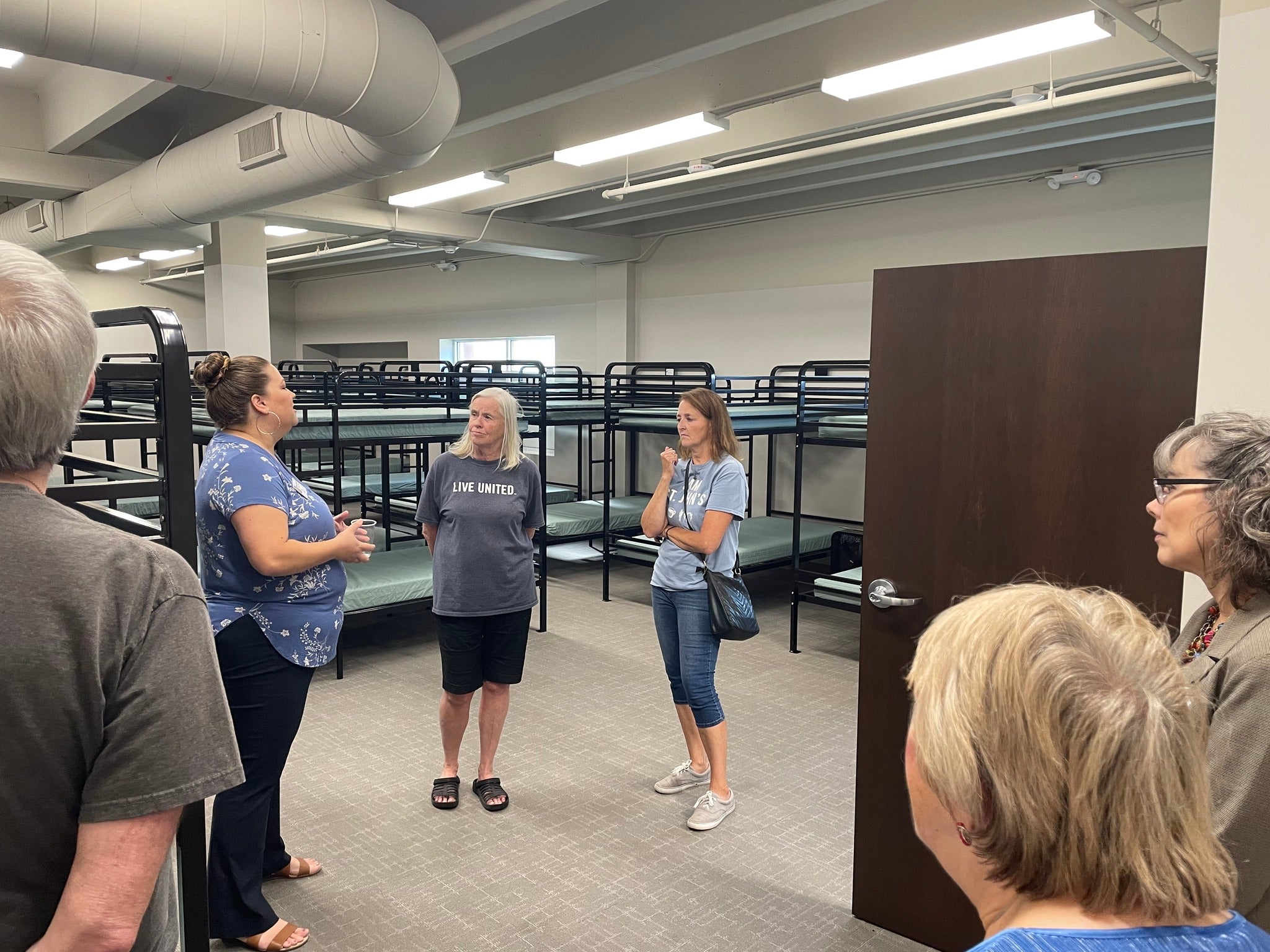As temperatures remain frigid across much of Wisconsin, homeless shelters and warming centers in the state are feeling the added strain of housing people during the pandemic.
Joe Volk, executive director of the Wisconsin Coalition Against Homelessness, said most shelters have had to reduce the number of beds heading into this winter in order to maintain social distancing.
“State and local governments have been trying to rent motel rooms to try to make up for that,” Volk said. “There were certainly more people living outside going into this winter than there have been in past winters.”
Stay informed on the latest news
Sign up for WPR’s email newsletter.
He said the extreme temperatures also make it more difficult for organizations to do outreach and check in on people living in vehicles or outdoors.
Even with the cold, Volk said some people experiencing homelessness are afraid to stay at shelters because of the coronavirus.
“They don’t want to get sick, much like the general public doesn’t want to go to a hospital or urgent care center (during the pandemic),” Volk said. “You can imagine a homeless person trying to make a decision, even in the cold, whether to stay outside or go into a shelter.”
Roberto Partarrieu is the executive director of Catholic Charities of the Diocese of La Crosse, which operates shelters in La Crosse, Eau Claire and Wausau.
He said they’ve been working with local governments and other charitable organizations to keep their shelters running during the pandemic.
“We had to move about three times in each location to find a larger space and more comfortable space so we can keep our guests with social distancing,” Partarrieu said.
In La Crosse, funding from the county government has helped Catholic Charities and the Salvation Army rent rooms in a hotel in order to isolate people who test positive for the coronavirus.
Partarrieu said his organization is currently able to shelter around 95 people in Eau Claire after they converted an old grocery store into a shelter. He said they’ve also moved operations in Wausau to a local church basement.
Partarrieu said they have been testing people for the virus when they come to a shelter to try to prevent outbreaks.
But even with added precautions, he said they have seen spread at their La Crosse and Eau Claire shelters. He also said isolating people who are positive or who have been exposed comes with an added cost.
“We have doubled the cost of all of our operations,” Partarrieu said. “We had to hire people, and we are now serving the individuals 24/7.”
He said the extreme cold temperatures across much of the state in recent weeks have further complicated operations, with all guests staying at the shelters around the clock.
To try to reduce the number of people at shelters this winter, Partarrieu said his organization helped to place more than 100 people in permanent housing last year, almost three times the number of people they’ve served in previous years.
“What has happened, I think, is that everybody is more aware of the need of helping the homeless and helping the poor. Because many of these individuals are simply on the street because of lack of economics. They go into unemployment or they lose their jobs,” Partarrieu said. “We are all more aware of their needs, so everybody’s contributing.”
But he said the number of people Catholic Charities have served at their shelters this winter has remained around the same as previous years.
In Milwaukee, a former home for retired Catholic nuns now stands as a shelter for people experiencing homelessness and have COVID-19 or are vulnerable to the disease. Nearly 60 percent of the 200 people who have stayed there since March were positive for COVID-19, the Associated Press reported.
Michael Basford, director of the Wisconsin Interagency Council on Homelessness, said funding is by far the number one need for organizations operating shelters this winter. He said state and local funding has helped offset some costs, as well as federal funding from the coronavirus aid bill.
“A lot of communities have been able to respond quite well with this,” Basford said. “Also, we now have new guidance from (the Federal Emergency Management Agency), with the new federal administration, that will provide more resources for communities to provide non-congregate sheltering.”
He said FEMA had been reimbursing communities for 75 percent of the cost to house people in motel rooms during the pandemic. But the new guidance from the Biden administration means the agency will now be reimbursing 100 percent of cost.
Wisconsin Public Radio, © Copyright 2024, Board of Regents of the University of Wisconsin System and Wisconsin Educational Communications Board.

